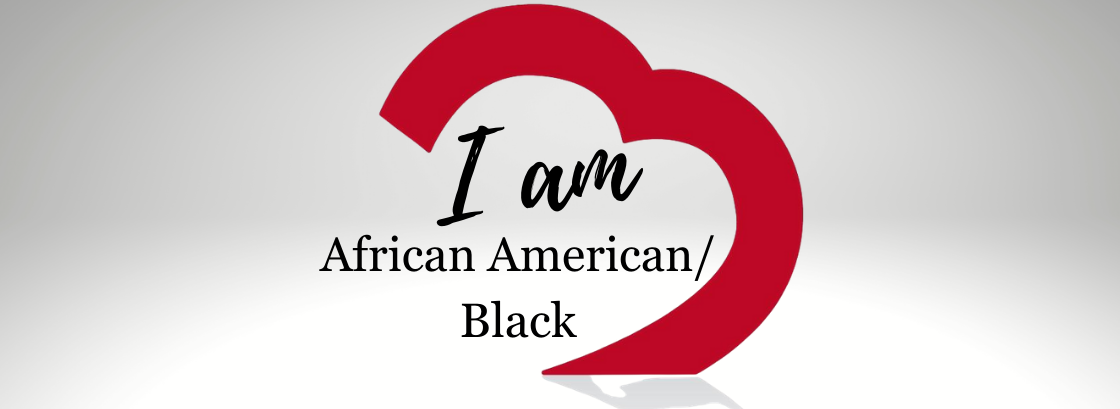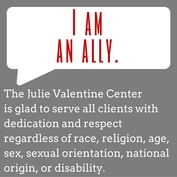The statistics on U.S. women and violence are staggering. “On average, one in three women are victims of intimate partner violence and one in five women are victims of sexual assault (NISVS 2012)”. These numbers call attention to the widespread issue of sexual violence in the U.S., which disproportionately affects women of color, immigrant women, LGBTQIA+ women, and disabled women.
For African American women, sexual assault and violence are issues that routinely go unreported and under-addressed. “Over eighteen percent of African American women will be sexually assaulted in their lifetime (MCASA)”. This percentage only represents the number of women who report their abuse. In order to address the issue of sexual violence against Black women, it is imperative that we look at the unique barriers faced by African American women.
Many cultural barriers can hinder Black women survivors from reporting, supporting other Black Women Survivors and healing from the assault: the burdensome expectation of strong Black womanhood; the power and influence of the Black church; the desire to shield Black men; and the lack of self-care are examples of the burden Black women survivors have to face. These barriers along with political, economic barriers and their unique history of racist and sexist victimization, the Black community has an even harder time than others dealing with rape. This prevents survivors from getting help and our communities from addressing the issue effectively. However, there are many things survivors can do to help heal from sexual assault.
Contacting the local rape crisis center is a great starting place. Calling the Association of Black Psychologist to find an African American therapist near you, if seeing a therapist who has experienced these barriers are important. Holistic approaches to healing like: Acupuncture, Aroma therapy, Yoga, Journaling, Creative Arts Therapies and workshops like: creative writing, spoken word, music, drama, and art making can be also be helpful. Finding and having a positive support system is critical to survivors healing journey. If you do not have a supportive person you can trust, please contact our 24hr hotline at 864-467-3633 or the National Sexual Assault Hotline at 1-800-656-4673. There is also additional information listed below that you may find helpful.
South Carolina Coalition Against Domestic Violence and Sexual Assault
http://www.sccadvasa.org//FileStream.aspx?FileID=217
The National Center on Violence Against Women in the Black Community
https://ujimacommunity.org/wp-content/uploads/2018/12/Ujima-Womens-Violence-Stats-v7.4-1.pdf
Why Do We Silence Black Girls and Women Who are Survivors of Sexual Violence?
Video https://www.youtube.com/watch?v=pDncSQPh0g4
American Psychological Association
https://www.apa.org/pi/about/newsletter/2020/02/black-women-sexual-assault
Maryland Coalition Against Sexual Assault
https://mcasa.org/assets/files/African-American-Women-and-Sexual-Assault1.pdf
References:
The National Intimate Partner and Sexual Violence Survey (NISVS): 2010-2012 state report. Retrieved from the Centers for Disease Control and Prevention, National Center for Injury Prevention and Control
MCASA African-American Women and Sexual Assault — bit.ly/masa_assault
For African American women, sexual assault and violence are issues that routinely go unreported and under-addressed. “Over eighteen percent of African American women will be sexually assaulted in their lifetime (MCASA)”. This percentage only represents the number of women who report their abuse. In order to address the issue of sexual violence against Black women, it is imperative that we look at the unique barriers faced by African American women.
Many cultural barriers can hinder Black women survivors from reporting, supporting other Black Women Survivors and healing from the assault: the burdensome expectation of strong Black womanhood; the power and influence of the Black church; the desire to shield Black men; and the lack of self-care are examples of the burden Black women survivors have to face. These barriers along with political, economic barriers and their unique history of racist and sexist victimization, the Black community has an even harder time than others dealing with rape. This prevents survivors from getting help and our communities from addressing the issue effectively. However, there are many things survivors can do to help heal from sexual assault.
Contacting the local rape crisis center is a great starting place. Calling the Association of Black Psychologist to find an African American therapist near you, if seeing a therapist who has experienced these barriers are important. Holistic approaches to healing like: Acupuncture, Aroma therapy, Yoga, Journaling, Creative Arts Therapies and workshops like: creative writing, spoken word, music, drama, and art making can be also be helpful. Finding and having a positive support system is critical to survivors healing journey. If you do not have a supportive person you can trust, please contact our 24hr hotline at 864-467-3633 or the National Sexual Assault Hotline at 1-800-656-4673. There is also additional information listed below that you may find helpful.
South Carolina Coalition Against Domestic Violence and Sexual Assault
http://www.sccadvasa.org//FileStream.aspx?FileID=217
The National Center on Violence Against Women in the Black Community
https://ujimacommunity.org/wp-content/uploads/2018/12/Ujima-Womens-Violence-Stats-v7.4-1.pdf
Why Do We Silence Black Girls and Women Who are Survivors of Sexual Violence?
Video https://www.youtube.com/watch?v=pDncSQPh0g4
American Psychological Association
https://www.apa.org/pi/about/newsletter/2020/02/black-women-sexual-assault
Maryland Coalition Against Sexual Assault
https://mcasa.org/assets/files/African-American-Women-and-Sexual-Assault1.pdf
References:
The National Intimate Partner and Sexual Violence Survey (NISVS): 2010-2012 state report. Retrieved from the Centers for Disease Control and Prevention, National Center for Injury Prevention and Control
MCASA African-American Women and Sexual Assault — bit.ly/masa_assault



